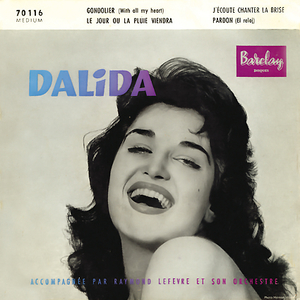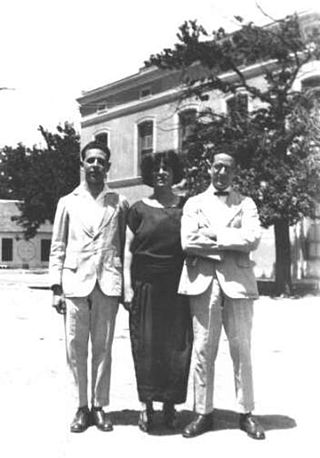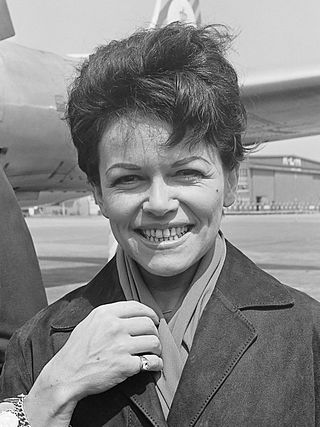
Catherine Bush is an English singer, songwriter, record producer, and dancer. In 1978, at the age of 19, she topped the UK Singles Chart for four weeks with her debut single "Wuthering Heights", becoming the first female artist to achieve a UK number one with a self-written song. Bush has since released 25 UK Top 40 singles, including the Top 10 hits "The Man with the Child in His Eyes", "Babooshka", "Running Up That Hill", "Don't Give Up", and "King of the Mountain". All ten of her studio albums reached the UK Top 10, with all but one reaching the top five, including the UK number one albums Never for Ever (1980), Hounds of Love (1985) and the greatest hits compilation The Whole Story (1986). She was the first British solo female artist to top the UK album charts and the first female artist to enter the album chart at number one.

Lynsey de Paul was an English singer-songwriter and producer. After initially writing hits for others, she had her own chart hits in the UK and Europe in the 1970s, starting with UK top 10 single "Sugar Me", and became the first British female artist to achieve a number one with a self-written song. She represented the UK in the 1977 Eurovision Song Contest, scoring another chart-topping hit in Switzerland and had a successful career as a two-time Ivor Novello Award-winning composer, record producer, actress and television celebrity.
"Blue Moon" is a popular song written by Richard Rodgers and Lorenz Hart in 1934 that has become a standard ballad. Early recordings included those by Connee Boswell and by Al Bowlly in 1935. The song was a hit twice in 1949, with successful recordings in the U.S. by Billy Eckstine and Mel Tormé.

"Here in My Heart" is a popular song written by Pat Genaro, Lou Levinson, and Bill Borrelli, first published in 1952.
"I Believe" is a popular song written by Ervin Drake, Irvin Abraham, Jack Mendelsohn and Al Stillman in 1953. The most popular version was recorded by Italian-American singer Frankie Laine, and spent eighteen weeks at No. 1 on the UK Singles Chart.

"Running Up That Hill", titled "Running Up That Hill (A Deal with God)" on some releases, is a song by the British singer and songwriter Kate Bush. It was released in the United Kingdom as the lead single from Bush's album Hounds of Love on 5 August 1985 by EMI Records. The lyrics imagine a scenario in which a man and a woman make "a deal with God" to exchange places. Bush wrote and produced "Running Up That Hill" using a Fairlight CMI synthesiser and a LinnDrum drum machine.

"Wuthering Heights" is a song by English singer Kate Bush, released as her debut single on 20 January 1978 through EMI Records. Inspired by the 1847 Emily Brontë novel of the same name, the song was released as the lead single from Bush's debut studio album, The Kick Inside (1978). It peaked at number one on the UK Singles Chart for four weeks. It also reached the top of the charts in Australia, Ireland, Italy, New Zealand, and Portugal. Bush became the first female artist in the United Kingdom to achieve a number-one single with a self-penned song with this song.

Sugar, Sugar is a song written by Jeff Barry and Andy Kim. It was originally recorded by the Archies, a fictional band of studio musicians linked to the 1968–69 US Saturday morning TV cartoon The Archie Show, inspired by the Archie Comics. In the autumn of 1969 the single topped both Billboard's Hot 100 and the UK Singles Chart, ranking No. 1 for the year in both America and Britain. “Sugar, Sugar” is the most successful bubblegum pop single of all time, and is widely regarded as the apotheosis of the late-1960s/early-1970s bubblegum music genre. In mid-1970 R&B/soul singer Wilson Pickett achieved success on both the US soul and pop charts with a cover version.
"You Raise Me Up" is a song composed by Rolf Løvland and written by Brendan Graham. It was first recorded by Secret Garden, in collaboration with Brian Kennedy. Although the original version was not a major hit, the song has since been recorded by more than a hundred other artists, most notably American singer Josh Groban in 2003 and Irish group Westlife in 2005. Welsh singer Aled Jones and female Irish ensemble Celtic Woman have also recorded successful covers.

The UK Singles Chart is compiled by the Official Charts Company (OCC), on behalf of the British record industry, listing the top-selling singles in the United Kingdom, based upon physical sales, paid-for downloads and streaming. The Official Chart, broadcast on BBC Radio 1 and MTV, is the UK music industry's recognised official measure of singles and albums popularity because it is the most comprehensive research panel of its kind, today surveying over 15,000 retailers and digital services daily, capturing 99.9% of all singles consumed in Britain across the week, and over 98% of albums. To be eligible for the chart, a single is currently defined by the Official Charts Company (OCC) as either a 'single bundle' having no more than four tracks and not lasting longer than 25 minutes or one digital audio track not longer than 15 minutes with a minimum sale price of 40 pence. The rules have changed many times as technology has developed, the most notable being the inclusion of digital downloads in 2005 and streaming in July 2014.

"Livin' on a Prayer" is a song by the American rock band Bon Jovi, and is the band's second chart-topping single from their third album Slippery When Wet. Written by Jon Bon Jovi, Richie Sambora and Desmond Child, the single, released in late 1986, was well received at both rock and pop radio and its music video was given heavy rotation at MTV, giving the band their first No. 1 on the Billboard Mainstream Rock chart and their second consecutive No. 1 Billboard Hot 100 hit.

"Gondolier" is a song by the French singer Dalida, first released on EP in December 1957. It was her second major hit after "Bambino". Reaching No. 1 on both the La Bourse des Chansons chart and the Music Hall chart in France, it was the title song for Dalida's 1958 album Gondolier. The song also reached No. 1 on the Belgian and Canadian charts.

"Don't Give Up" is a song written by the English rock musician Peter Gabriel and recorded as a duet with Kate Bush for Gabriel's fifth solo studio album So (1986). The single version was released as the second single from the album in the UK in 1986 and as the fifth single in the US in 1987.
"(There's) Always Something There to Remind Me" is a song by songwriting team Burt Bacharach and Hal David. Originally recorded as a demo by Dionne Warwick in 1963, "(There's) Always Something There to Remind Me" first charted for Lou Johnson, whose version reached No. 49 on the Billboard Hot 100 in the summer of 1964. Sandie Shaw took the song to No. 1 in the UK that same year, while the duo Naked Eyes had a No. 8 hit with the song in the US two decades later in 1983.

"Killer" is a song by British DJ and record producer Adamski. It was written by Adamski and British singer-songwriter Seal, who also provided vocals. "Killer" reached number one on the UK Singles Chart and spent four weeks at the top in May and June 1990. The single sold over 400,000 copies in the UK, earning it gold certification. It also reached number one in Belgium and Zimbabwe and number two in the Netherlands and West Germany.

Joseph Pessach, better known by his stage name Josef Marais, was a folk-singer from South Africa.

"Sugar Baby Love", recorded in autumn 1973 and released in January 1974, is a bubblegum pop song, and the debut single of The Rubettes. Written by Wayne Bickerton and Tony Waddington and produced by Bickerton, engineered by John Mackswith at Lansdowne Recording Studios, and with lead vocals by Paul Da Vinci, "Sugar Baby Love" was the band's one and only number one single in the UK Singles Chart, spending four weeks at the top of the chart in May 1974.

"This Woman's Work" is a song written and performed by the British singer Kate Bush. It was initially featured on the soundtrack of the American film She's Having a Baby (1988). The song was released as the second single from her album The Sensual World in 1989 and peaked at 25 in the UK Singles Chart.

Eve Boswell (born Éva Keleti; 11 May 1922 – 14 August 1998, was a Hungarian pop singer. With the outbreak of the Second World War, Eva's family moved to South Africa, where they worked with the Boswell Circus. After a few years in South Africa during which she got married, Eve was offered a temporary contract to work with a band in the United Kingdom. Eve's success with that contract eventually led to her becoming a popular solo singer in Britain in the 1950s.

"Rocket Man" is a song written by English musician Elton John and songwriter Bernie Taupin and performed by John. It was originally released on 17 April 1972 in the US, as the lead single to John's album Honky Château. The song first charted in the UK on 22 April, rising to No. 2 in the UK Singles Chart and No. 6 in the US Billboard Hot 100, becoming a major hit single for John.















